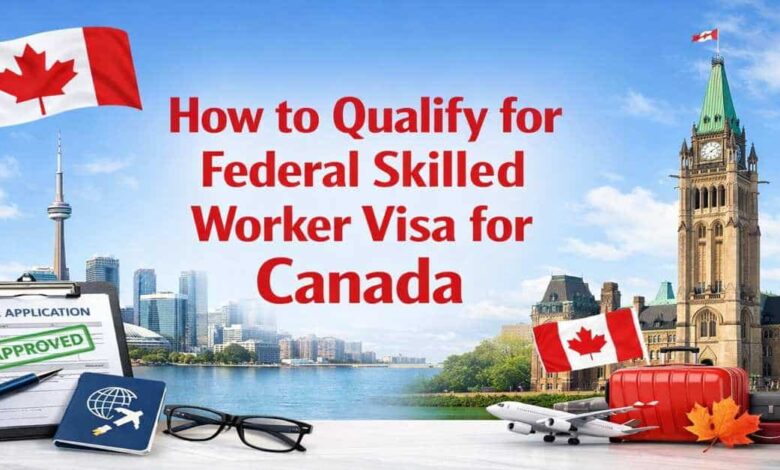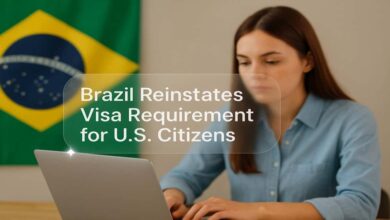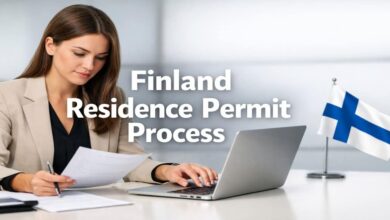How to Qualify for Federal Skilled Worker Visa for Canada

You’ve been thinking about free healthcare, maple syrup, and the Northern Lights. Canada is calling you, but how do you get there? Don’t worry! Here, we’ll show you how to get into the Federal Skilled Worker (FSW) Visa Program.
In just six easy but important steps, you’ll know if you’re on the fast track to becoming the next permanent resident of the Great White North who loves maple syrup and hockey. Are you ready? Let’s jump right in!
List of How to Qualify for Federal Skilled Worker Visa for Canada:
Master the Art of Language (28 Points Up for Grabs!):
For starters, you need to be able to speak and write in English and French, which are Canada’s legal languages. You’re already half way there if you’re great at either (or both!).
What do you need to do?
To optimize your language proficiency for immigration or job applications in Canada, follow these steps:
- Take an Approved Language Test:
- Choose an appropriate test like IELTS or CELPIP for English, or TEF for French.
- Achieve CLB 7 or Higher:
- Aim for a Canadian Language Benchmark (CLB) score of 7 or higher in your first language (English or French) to earn up to 24 points.
- Leverage Second Language Skills:
- If you have some proficiency in the second official language (French or English), aim for at least CLB 5 to gain an additional 4 points.
Show Off Your Smarts with Education Points (25 Points Max)
Your level of schooling can have a big effect on your FSW score. Your education could help you reach your goal of living in Canada, whether you earned it in Canada or another country.
How does it work?
Obtain an Educational Credential Assessment (ECA):
- Get an ECA to make sure that your degree meets Canadian standards if you study outside of Canada. This is important for immigration forms and helps you see how your education stacks up against Canadian education.
Maximize Your Points:
- Educational credentials can earn you points based on their level:
- High School Diploma: Earns a few points.
- Bachelor’s Degree: Typically earns more points.
- Master’s Degree: Higher points than a bachelor’s.
- PhD: Maximizes your score with the full 25 points!
Flex Your Work Experience (15 Points for Career Warriors)
Your work history is very important. No matter if you’re an IT expert, a nurse, a teacher, or someone else, Canada wants skilled workers in all fields.
How to nail this section:
Full-Time Work Experience:
- Be sure you’ve had at least one year of full-time paid work (or part-time work that counts) in a skilled job. This knowledge should fit into one of the National Occupational Classification (NOC) groups.
Increase Your Points with More Experience:
- The more years of skilled work you have, the more points you can accumulate:
- 1-2 years: Earn a certain number of points.
- 3-5 years: Points increase with additional experience.
- 6+ years: Hit the 15-point jackpot!
If you’re planning a career change, make sure your work experience fits into Canada’s National Occupational Classification (NOC) categories 0, 1, 2, or 3. No shortcuts here, folks.
Be the Right Age (12 Points Max But It’s Not a Dealbreaker)
Canada isn’t being nosy when they ask for your birth certificate it’s just a way to score points! The sweet spot? Between the ages of 18 and 35, you’ll get 12 points.
But don’t panic if you’re older!
Age Points:
- It doesn’t matter how old you are as long as you’re not under 18 or over 47. This is a very important part of your total score.
Points Decrease for Ages 36 and Above:
- As you get older, the points slowly go down starting at age 36. You can still improve your application by getting points for things like language skills, schooling, and work experience.
Focus on Other Areas:
- In order to get the best score, work on improving your skills in other areas, like:
- Language tests (IELTS, CELPIP, TEF)
- Educational credentials
- Work experience in skilled jobs
Bag a Job Offer (10 Points for the Ambitious!)
If a Canadian company offers you a job, it can really help your points total. If you already have a job lined up, you’re good to go. Not a boss? That’s fine. You don’t have to, but it’s a simple way to get 10 points.
What’s considered a valid offer?
- Full-Time Employment: The job must be full-time, typically defined as at least 30 hours per week.
- Duration: You must have worked in that job for at least one year, or the same number of part-time hours.
- TEER Categories: The job must fit into one of the TEER groups for skilled jobs, which stand for Training, Education, Experience, and Responsibilities. As per the National Occupational Classification (NOC) method, make sure that your job fits in.
Adapt Like a Pro (10 Points to Settle Smoothly)
While moving to a new country isn’t easy, you’ll be in great shape if you have some adaptability points handy. Canada wants to know that you’ll be able to fit in well, so they give points for things like
Spouse’s Language Skills:
- You can get an extra 5 points if your partner speaks English or French. Make sure they can back this up with valid test marks.
Past Work or Studies in Canada:
- You can get an extra 5 points if you have studied in Canada for at least two years. This can make your image a lot better.
Relatives in Canada:
- You can get extra points if you have a parent, child, aunt, or cousin living in Canada. To get the most out of this benefit, check the exact requirements for which relatives are eligible.
Conclusion:
Embarking on your journey to Canada through the Federal Skilled Worker Visa Program may seem daunting, but by following these six crucial steps, you can streamline your application process. Focus on improving your language skills, maximizing your educational credentials, and showcasing your work experience. Remember, age and job offers can influence your score, so plan strategically.
With determination and the right preparation, you’ll be well on your way to embracing the beauty of Canada and all it has to offer.
Frequently Asked Questions:
What is the Federal Skilled Worker (FSW) Visa Program?
The FSW Visa Program allows skilled workers from around the world to apply for permanent residency in Canada based on their work experience, education, and language skills.
What educational qualifications are required?
Candidates must obtain an Educational Credential Assessment (ECA) to verify that their education meets Canadian standards. Points are awarded based on the highest level of education completed.




